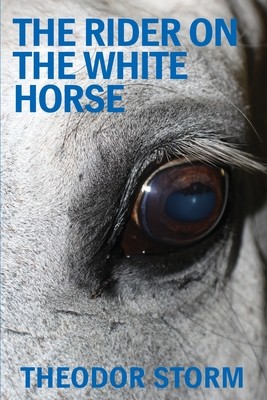
- We will send in 10–14 business days.
- Author: Theodor Storm
- Publisher: Solis Press
- ISBN-10: 191014665X
- ISBN-13: 9781910146651
- Format: 15.6 x 23.4 x 0.7 cm, minkšti viršeliai
- Language: English
- SAVE -10% with code: EXTRA
Reviews
Description
This novella, first published in 1888, was the final and arguably the finest work by German writer, Theodor Storm.
Combining both realism and the supernatural, The Rider on the White Horse is full of symbolism and superstition. Here, humankind must battle against the forces of nature, a struggle embodied by the image of the phantom-like rider and his white horse galloping into the waves.
This is a tale of a man from the North German fenlands who tries to tame not only the natural world but also the reactionary ideas and ingrained superstitions of his neighbors. Storm uses narrative framing, stories within stories, to move across time and conventional boundaries to explore different aspects of how we see ourselves, each other, and our relationship with our environment.
The main narrative focuses on Hauke Haien, his dramatic encounters with the sea and his obsessive mission to protect the low-lying land, a quest that leads him into the realm of science and mathematics. There is a sense that superstition is under scrutiny by reason, yet an underlying uneasiness remains in the imagery that permeates the text: the incessant screaming and shrieking of the gulls, the roar of the waves, the constant reference to eyes with the "burning eyes" of the white-horse rider, and the inquiring gaze of the old schoolteacher. Nature is portrayed as wild, unpredictable, and disconcerting, while the community is always mindful of its destructive powers.
- Author: Theodor Storm
- Publisher: Solis Press
- ISBN-10: 191014665X
- ISBN-13: 9781910146651
- Format: 15.6 x 23.4 x 0.7 cm, minkšti viršeliai
- Language: English English
This novella, first published in 1888, was the final and arguably the finest work by German writer, Theodor Storm.
Combining both realism and the supernatural, The Rider on the White Horse is full of symbolism and superstition. Here, humankind must battle against the forces of nature, a struggle embodied by the image of the phantom-like rider and his white horse galloping into the waves.
This is a tale of a man from the North German fenlands who tries to tame not only the natural world but also the reactionary ideas and ingrained superstitions of his neighbors. Storm uses narrative framing, stories within stories, to move across time and conventional boundaries to explore different aspects of how we see ourselves, each other, and our relationship with our environment.
The main narrative focuses on Hauke Haien, his dramatic encounters with the sea and his obsessive mission to protect the low-lying land, a quest that leads him into the realm of science and mathematics. There is a sense that superstition is under scrutiny by reason, yet an underlying uneasiness remains in the imagery that permeates the text: the incessant screaming and shrieking of the gulls, the roar of the waves, the constant reference to eyes with the "burning eyes" of the white-horse rider, and the inquiring gaze of the old schoolteacher. Nature is portrayed as wild, unpredictable, and disconcerting, while the community is always mindful of its destructive powers.


Reviews